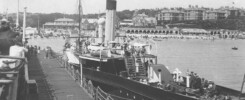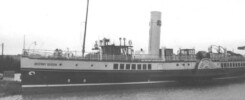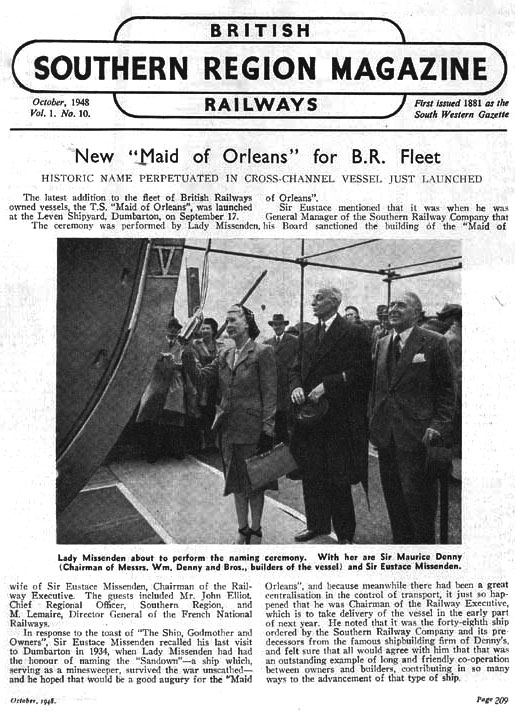
The October 1948 edition of the Southern Region Magazine of the newly formed British Railways has on its cover a picture of Lady Missenden, wife of Sir Eustace Missenden, Chairman of the Railway Executive, doing the honours at the launch of the Dover Straits Cross Channel ferry Maid of Orleans.
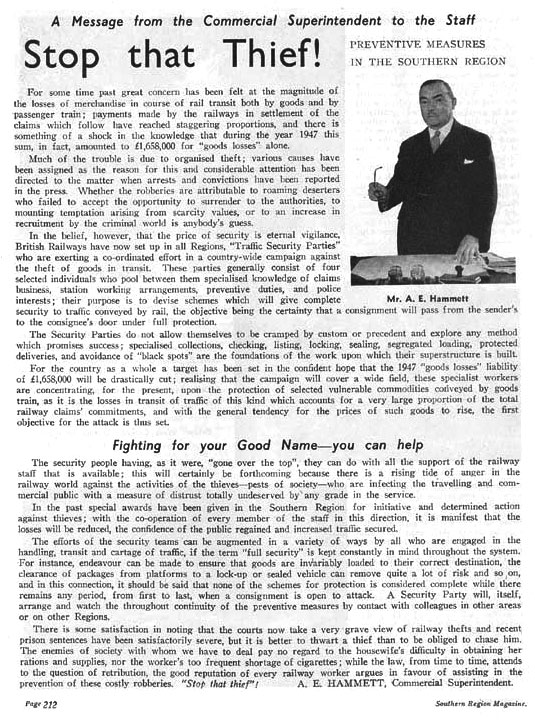
Inside on 212 (page 1 seems to have been the first page of the first ever edition in January 1948) there is a rather less than happy report from Mr A E Hammett, the Commercial Superintendent, about theft. He says:
For some time past great concern has been felt at the magnitude of the loss of merchandise in course of transit; payment paid by the railways in settlement of claims which follow have reached staggering proportions, and there is something of a shock in the knowledge that during the year 1947 this sum, in fact, amounted to £1,658,000 for goods losses alone.
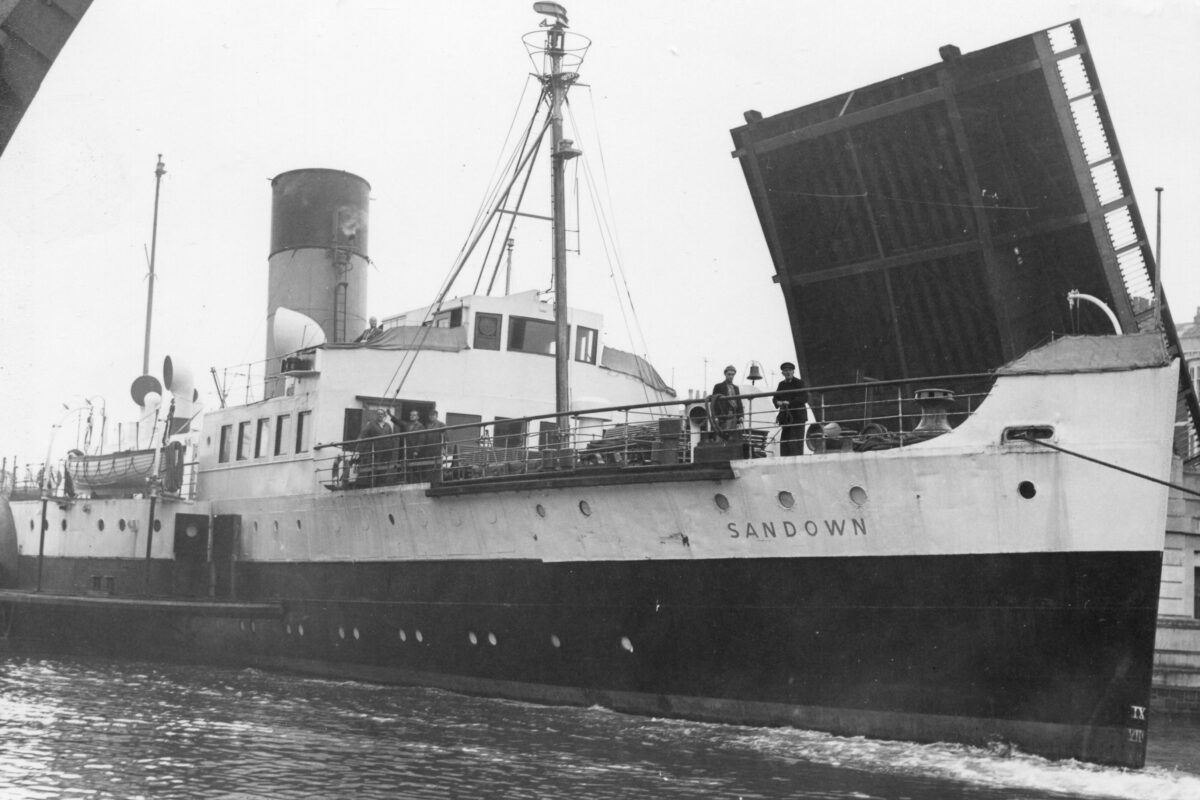
Although Mr Hammett was primarily speaking of losses on the railways themselves, British Railways also ran a fleet of ships including several paddle steamers, all of which could carry freight of one or sort or another which could and did sometimes go missing just like on land. The Portsmouth to Ryde paddle steamers could all carry cargo either on deck or like Sandown of 1934 (which, as it happened, was also launched by the same Lady Missenden) loaded through a hatch just forward of the bridge.
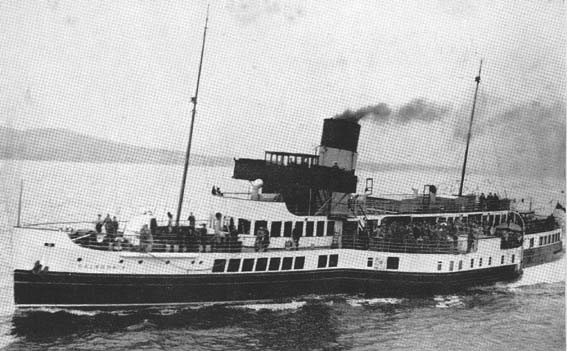
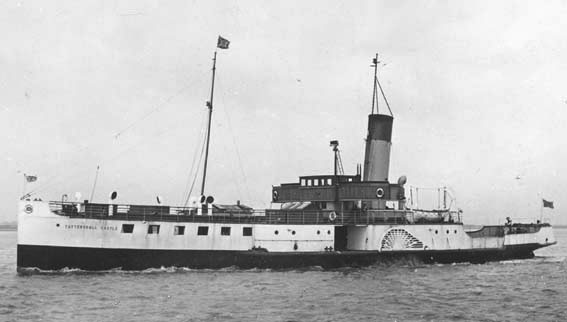
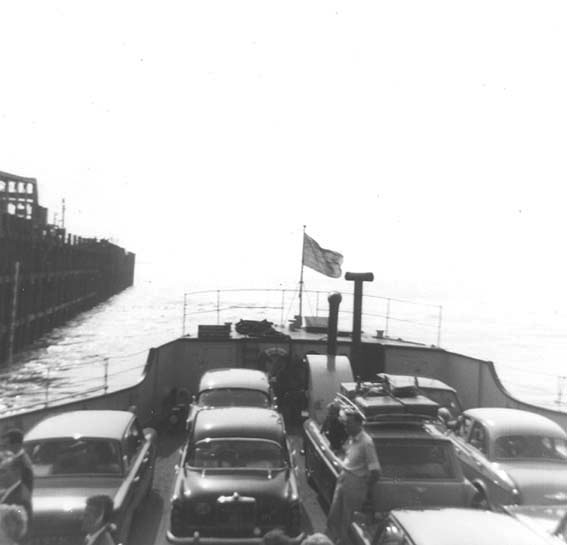
Mr Hammett continued:
Much of the trouble is due to organised theft; various causes have been assigned as the reason for this and considerable attention has been directed to the matter when arrests and convictions have been reported in the press. Whether the robberies are attributable to roaming deserters who failed to accept the opportunity to surrender to the authorities, to mounting temptation arising from scarcity values, or to an increase in recruitment by the criminal world is anybody’s guess.
In the belief, however, that the price of security is eternal vigilance, British Railways have now set up in all regions “Traffic Security Parties” who are exerting a co-ordinated effort in a country-wide campaign against the theft of goods in transit. These parties generally consist of four selected individuals who pool between them specialised knowledge of claims business, preventive duties and police interests; their purpose is to device schemes which will give complete security.
The Security Parties do not allow themselves to be cramped by custom or precedent and explore any method which promises success.
There is some satisfaction in noting that the courts now take a very grave view of railway thefts and recent prison sentences have been satisfactorily severe but it is better to thwart a thief than to be obliged to chase him. The enemies of society with whom we have to deal pay no regards to the housewife’s difficulties in obtaining her rations and supplies, nor the worker’s too frequent shortage of cigarettes; while the law, from time to time, attends to the question of retribution, the good reputation of every railway worker argues in favour of assisting in the prevention of these costly robberies. “Stop that thief!”
Mr Hammett’s article presents a rather less than flattering picture of a Britain emerging from the devastation of the Second World War where food was still in short supply and rationed and (and this is news to me) deserters from the armed forces were roaming the country causing mischief. All in all, the reality seems not to have been quite like the idyllic Britain full of cheerful chappies portrayed in the black and white feature films showing each week up and down the land in the Gaumont cinemas of the time.
Plugging Mr Hammett’s figure of £1,658,000 into the “This is Money Inflation Calculator” gives the colossal sum of almost £54,905,830.60 in today’s money. That’s quite a lot of stuff to drop off the back of a train or a paddle steamer in a year and quite enough, in fact, to build at least eight replicas of the paddle steamer Consul today. Now there’s a thought!
Kingswear Castle returned to service in 2023 after the first part of a major rebuild which is designed to set her up for the next 25 years running on the River Dart. The Paddle Steamer Kingswear Castle Trust is now fund raising for the second phase of the rebuild. You can read more about the rebuilds and how you can help if you can here.
John Megoran

